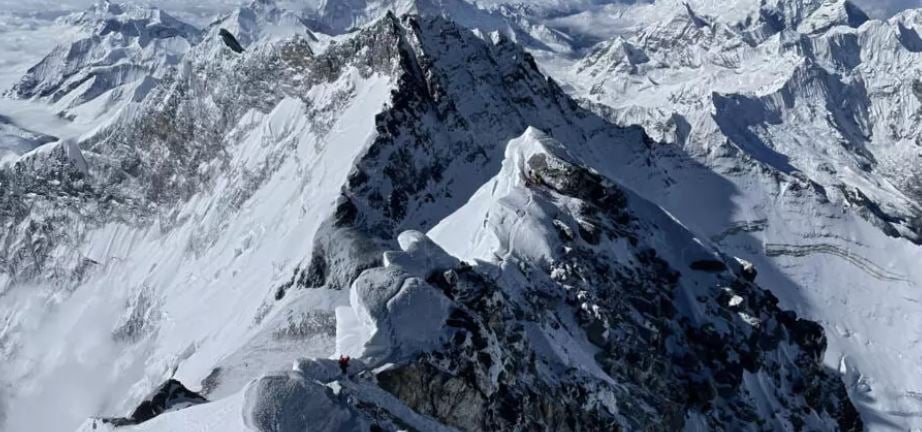
KATHMANDU, Oct 11, 2024 (BSS/AFP) - A documentary team discovered human
remains on Mount Everest apparently belonging to a man who went missing while
trying to summit the peak 100 years ago, National Geographic magazine
reported Friday.
Climate change is thinning snow and ice around the Himalayas, increasingly
exposing the bodies of mountaineers who died chasing their dream of scaling
the world's highest mountain.
Briton Andrew Irvine went missing in 1924 alongside climbing partner George
Mallory as the pair attempted to be the first to reach Everest's summit,
8,848 metres (29,029 feet) above sea level.
Mallory's body was found in 1999 but clues about Irvine's fate were elusive
until a National Geographic team discovered a boot, still clothing the
remains of a foot, on the peak's Central Rongbuk Glacier.
On closer inspection, they found a sock with "a red label that has A.C.
IRVINE stitched into it", the magazine reported.
The discovery could give further clues as to the location of the team's
personal effects and may help resolve one of mountaineering's most enduring
mysteries: whether Irvine and Mallory ever managed to reach the summit.
That could confirm Irvine and Mallory as the first to successfully scale the
peak, nearly three decades before the first currently recognised summit in
1953 by climbers Edmund Hillary and Tenzing Norgay.
"It tells the whole story about what probably happened," Irvine's great-niece
Julie Summers told National Geographic.
Members of the Irvine family reportedly offered to share DNA samples to
confirm the identity of the remains.
Irvine was 22 when he went missing.
He, along with Mallory, was last spotted by one of the members of their
expedition on the afternoon of June 8, 1924, after beginning their final
ascent to the summit that morning.
Irvine is believed to have been carrying a vest camera -- the discovery of
which could rewrite mountaineering history.
Photographer and director Jimmy Chin, who was part of the National Geographic
team, believes the discovery "certainly reduces the search area" for the
elusive camera.
More than 300 people have perished on the mountain since expeditions started
in the 1920s.
Some are hidden by snow or swallowed down deep crevasses.
Others, still in their colourful climbing gear, have become landmarks en
route to the summit and bestowed with gallows humour nicknames, including
"Green Boots" and "Sleeping Beauty".